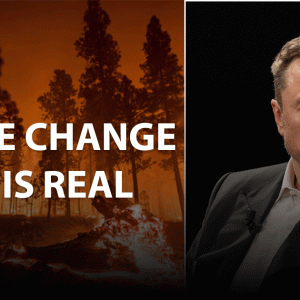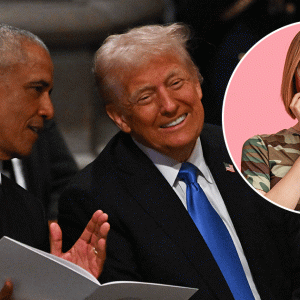In an unexpected turn of events, Alec Baldwin, the renowned actor and filmmaker, has sparked a heated online debate after making a bold statement about tech mogul Elon Musk. In a dramatic moment captured during an interview just minutes ago, Baldwin declared that Musk “doesn’t belong to America.” The comment, fiery and polarizing, quickly set social media ablaze with reactions from fans, critics, and Musk himself.

The statement has left many questioning Baldwin’s intentions and whether it was a spur-of-the-moment remark or a calculated move to address deeper issues surrounding Musk’s controversial persona. Meanwhile, Musk’s response has only added fuel to the fire, intensifying the drama unfolding across platforms. Let’s dive into the details of this captivating confrontation.

Alec Baldwin, a figure well-known for his outspoken nature, has never shied away from controversy. Whether through his comedic impersonations of political figures or his candid opinions on societal matters, Baldwin remains a lightning rod for public debate. However, his latest comments on Elon Musk seem to have struck a particularly sensitive nerve. During the interview, Baldwin questioned Musk’s identity as an “American icon,” claiming that his actions and influence do not align with what Baldwin perceives as core American values.

According to Baldwin, Musk’s global operations, including his ventures in electric vehicles, space exploration, and artificial intelligence, reflect a detachment from the everyday struggles of average Americans. The actor argued that Musk’s “privileged position” and focus on futuristic ambitions make him out of touch with the nation’s pressing realities, such as economic inequality and climate change. Baldwin further suggested that Musk’s South African roots complicate his cultural and ethical ties to America.
Within moments of Baldwin’s remarks surfacing online, reactions poured in from across the spectrum. Some applauded Baldwin for addressing what they see as the unchecked power of billionaires like Musk. Others, however, criticized Baldwin for targeting Musk’s heritage, branding the comments as divisive and unproductive.
Elon Musk, a master of online engagement, wasted no time in responding. Known for his sharp wit and unapologetic tweets, Musk took to Twitter to deliver a succinct but impactful retort: “I thought America was the land of freedom and opportunity. Guess not, Alec.” The tweet, as expected, quickly went viral, garnering millions of likes, retweets, and comments. Musk’s reply not only rebuked Baldwin’s claim but also highlighted the irony of questioning someone’s belonging in a country celebrated for its diversity and inclusiveness.
Musk’s fanbase rallied behind him, defending his contributions to technology and innovation. They pointed to Tesla’s role in revolutionizing the auto industry, SpaceX’s groundbreaking achievements in space exploration, and his efforts to combat climate change through renewable energy solutions. For many, Musk embodies the very essence of the American dream—a self-made individual pushing boundaries and redefining industries.
On the other hand, Baldwin’s supporters emphasized the importance of holding influential figures accountable. They argued that Musk’s immense wealth and power warrant scrutiny, particularly in a society grappling with social and economic disparities. For them, Baldwin’s statement sheds light on the growing tension between billionaires and the working class—a topic that resonates deeply in contemporary America.
As the debate rages on, commentators and analysts have begun dissecting the broader implications of this feud. Some view it as a reflection of the cultural divide in America, where contrasting visions of success and identity often clash. Others see it as a distraction from more significant issues, such as policy reform and collective action on climate change.
The clash between Baldwin and Musk also underscores the evolving dynamics of celebrity culture and influence. In an era where public figures wield immense power through social media, their words and actions carry far-reaching consequences. Baldwin’s critique and Musk’s response have not only captivated the internet but also reignited discussions about what it means to be an “American” in a globalized world.
Amid the controversy, both Baldwin and Musk have remained unapologetic. Baldwin, in a follow-up statement, stood by his comments, asserting that his criticism was aimed at sparking dialogue rather than alienating anyone. Musk, for his part, has continued to engage with his followers, using humor and satire to defuse tensions while reinforcing his stance.
This high-profile drama serves as a reminder of the power of public discourse and the role of influential figures in shaping narratives. It also highlights the complexities of identity, belonging, and success in a rapidly changing world. Whether you side with Baldwin, Musk, or find yourself somewhere in between, this episode offers plenty of food for thought.
In the coming days, it remains to be seen how this feud will evolve. Will Baldwin and Musk find common ground, or will their exchange escalate into a full-blown cultural debate? For now, the internet continues to buzz with speculation, memes, and heated discussions.
What’s clear is that both Baldwin and Musk have tapped into a vein of collective curiosity and emotion, drawing attention to issues that transcend their personal spat. From the role of billionaires in society to the meaning of national identity, this drama has sparked a conversation that extends far beyond its celebrity protagonists.
Stay tuned as we monitor the unfolding story, and be sure to check out the latest updates in the comments below. As the saying goes, truth is often stranger than fiction—and this saga is no exception. Whether you see it as a moment of entertainment or a window into deeper societal tensions, one thing is for certain: Alec Baldwin and Elon Musk have once again reminded us of the power of words to ignite a global conversation.





